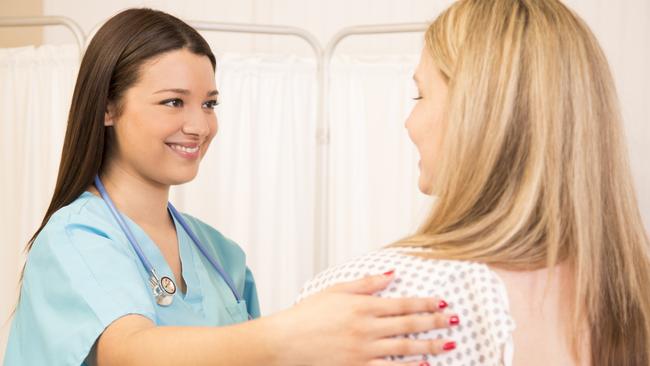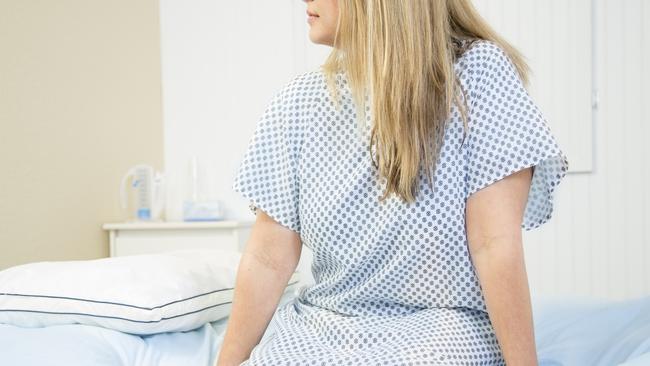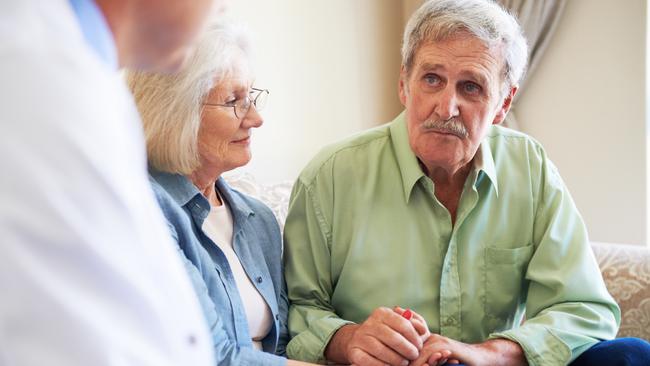Doctors failing to diagnose cancer as patient costs soar
It’s one of the nation’s biggest killers but doctors are failing to diagnose cancer with many patients told they have other illnesses and waiting six months to be told its cancer.

Illness
Don't miss out on the headlines from Illness. Followed categories will be added to My News.
Doctors are failing to diagnose many cancer cases and patients lives are being put at risk as a result.
Nearly one in three cancer patients are initially wrongly told they had another illness and one in eight wait six months to get a proper diagnosis a damning survey has found.
And it’s emerged that Australian cancer patients are way more likely to have to pay for parts of their treatment than patients in other developed countries and the problem here is even worse than in the United States.
Eight in 10 cancer patients in Australia had to part fund their care compared to just 14 per cent in the UK, 48 per cent in Canada and 68 per cent in the US.
Last year a Consumer’s Health Forum survey found one in four cancer patients had out of pocket expenses of more than $10,000 because health funds and Medicare rebates no longer cover the full cost of treatment, a survey has found.
Until recently Medicare rebates for X-rays and other scans have not been raised for more than 20 years and Medicare rebates for doctors fees had been frozen for five years.
And News Corp Australia has revealed many specialists are contributing to gap fees by charging patients 10 times the fee recommended by the Australian Medical Association.

The new All.can study included 850 Australian cancer patients as part of a worldwide investigation and it was funded by pharmaceutical companies Bristol-Myers Squibb, Amgen, MSD and Johnson & Johnson.
It found 28 per cent of patients whose cancer was diagnosed outside of a screening program had their cancer diagnosed as something different, often multiple times.
Many patients reported lack of empathy around their diagnosis with some being told they had cancer on Friday night and having to wait until the following week for more information.
More than a third said they did not feel involved enough in deciding which treatment options were best for them.
And half felt let down after their treatment ended and said they did not get enough support to deal with ongoing symptoms and side effects of their treatment.
Four in 10 said they did not get enough information from doctors about signs and symptoms that would suggest their cancer was returning or getting worse.
MORE HEALTH NEWS:
The staggering cost of fighting breast cancer
AMA list exposes overcharging doctors
How public hospitals are ripping off patients

Renee Delaney from Collaroy in Sydney, whose daughter Maddie was diagnosed with acute lymphoblastic leukaemia three years ago, said her daughter initially faced a six-week wait for an appointment with the haematologist who eventually diagnosed her cancer.
“If we had waited that six weeks she wouldn’t be with us because her leukaemia was very fast growing,” the mother said.
Even though the family used the public hospital system for most of the cancer care there were bills of $150 to $200 a month for oral chemotherapy and other medicines.
Bills for hospital parking were $50 per day and government discounts only covered less than half the bill.
Cancer Council CEO Sanchia Aranda said general practitioners needed better guidelines built into their practice software to help them order the right tests to rule cancer in or out and speed up access to treatment.
Rare Cancer’s Australia CEO Richard Vines said rare cancers were extremely difficult to diagnose and it was time to look at genetic screening and other measures to identify people who might be at risk so they could get regular monitoring to catch the cancer earlier.
Ovarian Cancer Australia CEO Jane Hill said symptoms of this cancer were vague and it was hard to diagnose and most women waited 32 weeks to be told they had cancer.


